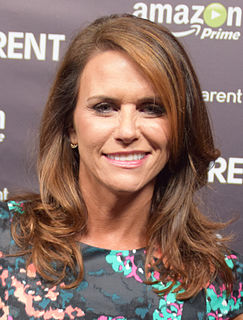A Quote by Steven Pinker
Equity feminism is a moral doctrine about equal treatment that makes no commitments regarding open empirical issues in psychology or biology.
Related Quotes
Let's admit that feminism came from liberalism and it was very positive. But then it went dark. It went into a bad place. When feminism replaced biology with social construct, they started to say that everything about a human being was created by your environment or by your - by environmental cues as opposed to innate traits... Like you didn't achieve what you could get because it was your fault. They denied traits that are applied across all cultures. And that's where feminism went wrong is it denied biology and makes them look foolish.
We are now returning to the 18th century empirical approach with the new interest in the evolutionary basis of ethics, with 'experimental' moral philosophy and moral psychology. As a result, we understand better why moral formulas are experienced as ineluctable commands, even if there is no commander and even if the notion of an inescapable obligation is just superstition. So moral philosophy has made huge progress.
I don’t know what happened through the ’80s, ’90s, and ’00s that took feminism off the table, that made it something that women weren’t supposed to identify with and were supposed to be ashamed of. Feminism is about the fight for equality between the sexes, with equal respect, equal pay, and equal opportunity. At the moment we are still a long way off that.
In terms of feminism, I would just ask young women to keep an open mind about it and try to learn about it before they write it off or believe the negative stereotypes that surround it. Feminism can help you on a personal level, it can offer you an incredible community of brilliant and impassioned people, and can change the way you see the world if you just open yourself up to it. I think that goes for all causes as well.
In the Germany of the l920s, the Weimar Republic, both organismic biology and Gestalt psychology were part of a larger intellectual trend that saw itself as a protest movement against the increasing fragmentation and alienation of human nature. The entire Weimar culture was characterized by an antimechanistic outlook, a "hunger for wholeness". Organismic biology, Gestalt psychology, ecology, and, later on, general systems theory all grew out of this holistic zeitgeist.
Women don't want equal treatment, they couldn't handle it if they got it. It's a tough world out there. What a lot of women are actually looking for is special treatment. What women need to realise is that they have to toughen up, we can't ask for equal pay, you have to be paid on performance and the results you deliver.





































